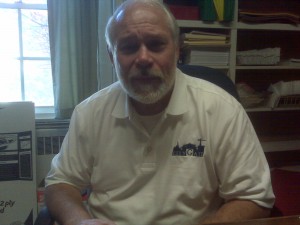LISTEN TO LYNN BERGFALK
Audio clip: Adobe Flash Player (version 9 or above) is required to play this audio clip. Download the latest version here. You also need to have JavaScript enabled in your browser.
For the last decade and without much fanfare, City Gate has been operating year-round youth programs throughout the District of Columbia, particularly east of the Anacostia River. The Washington Post recently reported that 43 percent of African-American children in D.C. are living in poverty. East of the Anacostia River in Wards 7 and 8, where unemployment stands at more than 30 percent, child poverty is even greater.
In such an environment, there is great need for quality youth programs. City Gate’s funding for its programming at the Merrick Center this past summer came through a grant from D.C.’s Office of the State Superintendent of Education (OSSE) to Youth Engaged for Success (YES). While City Gate ran a successful program, the organization has not received the more than $60,000 it is owed, according to Rev. Lynn Bergfalk, City Gate’s founder.
OSSE points to problems with YES’s fiscal management as a reason for stopping its grant to YES, which had the effect of stopping City Gate from being funded. In an email to TheFightBack.org, OSSE said, “Monitoring of the YES grant has revealed substantial findings related to fiscal management and program accountability. We did not separately evaluate programming by City Gate as they were not a grantee. For this reason, we cannot really comment on the services provided by City Gate.”
While City Gate struggles to stay afloat after non-payment of tens of thousands of dollars, the city is pushing through hundreds of millions of dollars in tax breaks for luxury hotels. Rev. Bergfalk said, “In society, the existing power arrangements, perhaps understandably, serve first the interests of those who have the most resources and the most power. And I really think we need to raise our voices on behalf of people who really have no voice. And we have got to say for kids in Ward 8 in poor neighborhoods, or wherever it is that really doesn’t have a place at the table, ‘Look, when these billions or millions of dollars are being allocated for a variety of projects… don’t forget that there is nothing more precious than the lives of… children in poor communities.'”

